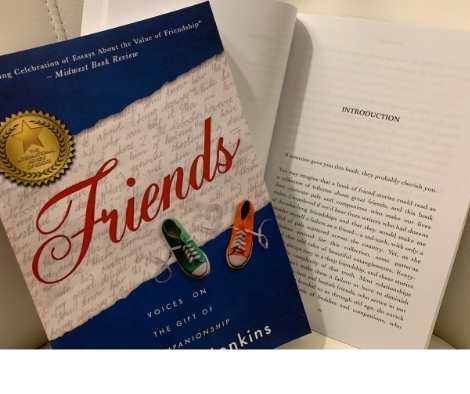Considering Aristotle and Nicomachean Ethics on Friendship
Can friendships be sorted into one of three categories as Aristotle postulated? Since we are still talking about what he had to say way back in 350 B.C.E., we are culturally bound to his analysis of friendships. Still, I think cultural mobility, the digital age, and the emphases on the individual over community common to western cultures have all altered the way we experience friendships. You can read a translation of Aristotle’s actual words near the bottom of the page; his simplified framework label friendships as follows:
Friendships of utility
These friends help us and make our lives work. You watch my kid; I’ll dog sit for you. I’ve got extra lasagna; could you please jump my car? I like it when you share my posts.
Friendships of pleasure
These are the friends that you click with. You enjoy each other. Perhaps you share a love of the same books or football team. You laugh or cry well together. Perhaps you skateboard together as Chris Wiewiora and his friend did in Board in the Suburbs (Chapter, 19 ‘Friends: Voices on the Gift of Companionship.’)
Friendships of the good
Mutual respect and admiration form the foundation of these friendships. These relationships are powerful, enduring, and often built on similar values and goals.

This framework does help us to examine friendships, and it’s tempting to think that only the “friendships of the good” have high value. Friendships of utility and pleasure certainly can build into friendships of the good. But life is complicated, and people leave us, or are too busy with work challenges, health challenges, parenting, parents, education and more to advance many relationships to a friendship of the good. Every companion isn’t afforded the time or proximity to develop to the ultimate level, but many people, who are there when we need them, can help us survive. A friendship of utility at the right time can be very meaningful, and as we support each other, we foster the biologic imperative. We need each other to survive.

When I wrote the introduction to ‘Friends: Voices on the Gift of Companionship’ I wrote of a young man with an alternate lifestyle who helped me through an evening. He was gay and lived in a polyamorous relationship, while I was a suburban, traditional wife and mom. Yet, we clicked. We enjoyed each other’s company. He also helped me, and perhaps as a mother figure I helped him to feel accepted, when his own mother could not face who he was. The meaning of our encounter has stayed with me for decades, and I don’t even know his name. Let’s honor friendship, no matter how it shows up.
By Aristotle
Written 350 B.C.E
Translated by W. D. Ross
There are therefore three kinds of friendship, equal in number to the things that are lovable; for with respect to each there is a mutual and recognized love, and those who love each other wish well to each other in that respect in which they love one another. Now those who love each other for their utility do not love each other for themselves but in virtue of some good which they get from each other. So too with those who love for the sake of pleasure; it is not for their character that men love ready-witted people, but because they find them pleasant. Therefore those who love for the sake of utility love for the sake of what is good for themselves, and those who love for the sake of pleasure do so for the sake of what is pleasant to themselves, and not in so far as the other is the person loved but in so far as he is useful or pleasant. And thus these friendships are only incidental; for it is not as being the man he is that the loved person is loved, but as providing some good or pleasure. Such friendships, then, are easily dissolved, if the parties do not remain like themselves; for if the one party is no longer pleasant or useful the other ceases to love him.
Ross, W. D. (n.d.). The Internet Classics Archive: Nicomachean Ethics by Aristotle. Retrieved December 08, 2020, from http://classics.mit.edu/Aristotle/nicomachaen.1.i.html
Ready to leave Aristotle behind and celebrate friendships with personal stories of connection? Read FRIENDS (affiliate link).






